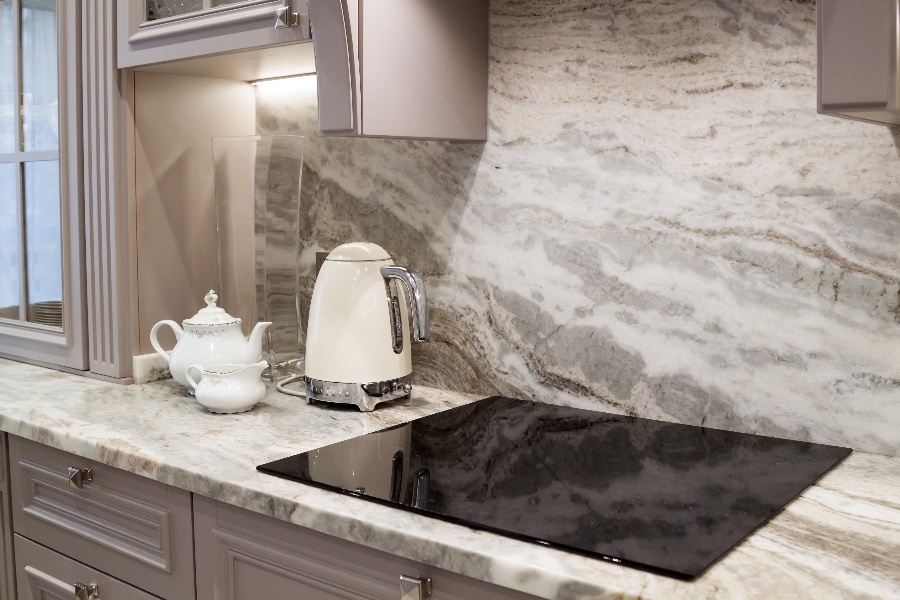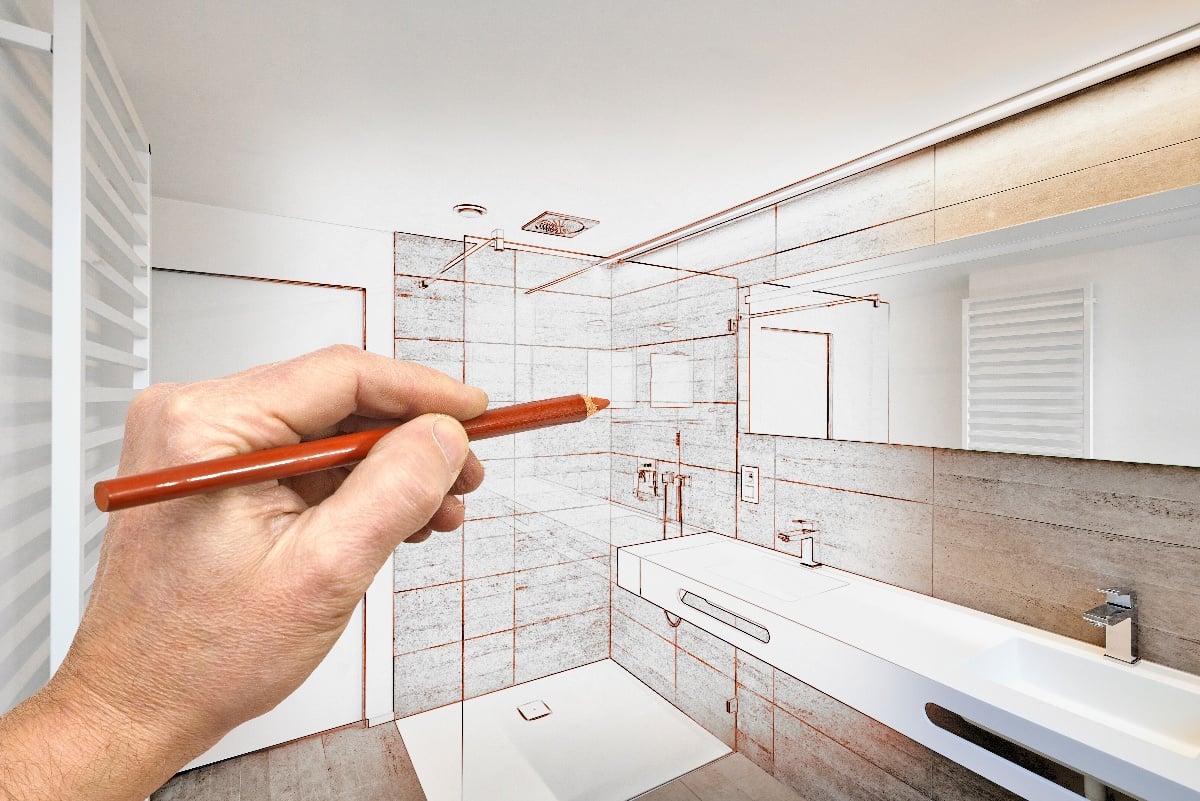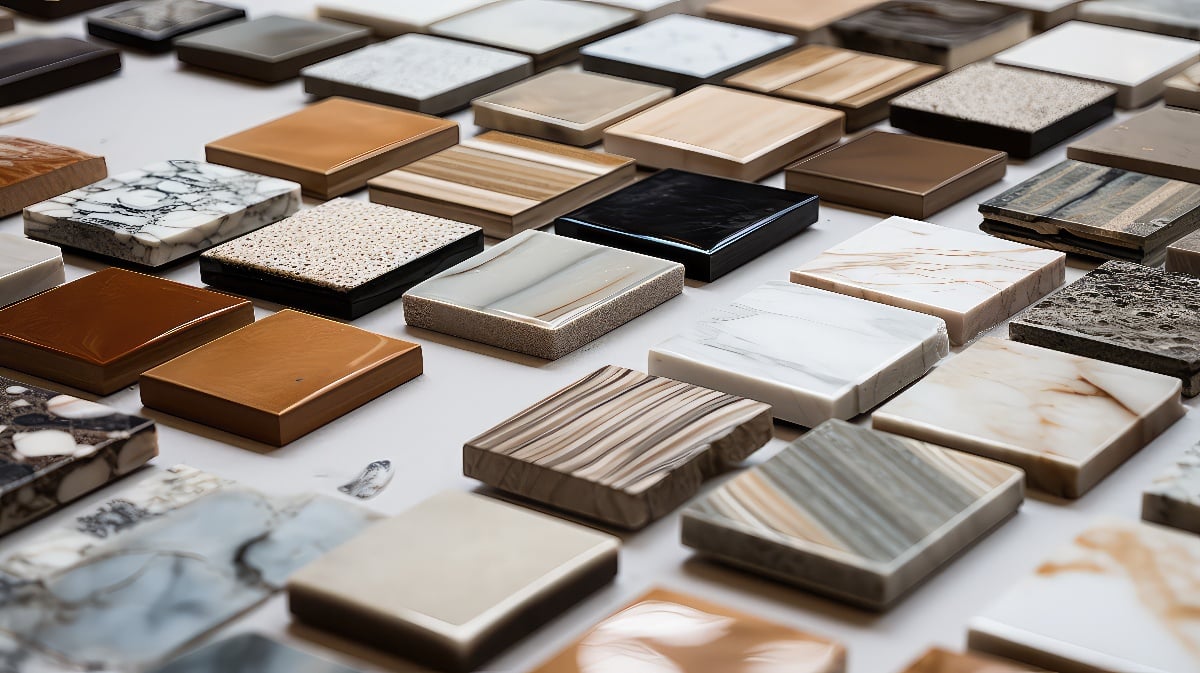When shopping for your next kitchen or bathroom countertop design, you will likely come across quartz countertops and quartzite countertops; the same thing, right? Absolutely not!
Quartz and quartzite are worlds apart in their natural look but share a few similarities that often confuse homeowners. Well, we have made it simple for you by highlighting key differences in the composition and application of quartzite and quartz in crafting countertops.
Read on to find out more:
Composition difference between quartz and quartzite
Quartzite is a natural metamorphic stone produced by the compression of sandstone under the earth's surface over millions of years. The mineral has a glassy appearance that rivals expensive marbles and comes in different colors depending on the composition of chemical compounds within it.
Quartz lacks the natural elegance of quartzite but provides a cheaper alternative that is produced industrially. Thanks to modern technology, manufacturers can now produce excellent quality quartz that almost matches the natural quality of quartzite. The engineered mineral contains about 90% natural quartz mixed with other chemicals such as resin and pigments.
What is the difference between quartzite and quartz countertops? Let's find out!
The difference between quartzite and quartz countertops
Quartzite is more natural
Both quartz and quartzite contain high amounts of quartz minerals. However, quartzite contains 96-99% quartz grains naturally crystallized. This is suitable for eco-friendly homeowners who wish to bring nature's elegance into their kitchens and bathrooms.
On the other hand, quartz contains up to 90% of quartz grains, and the crystals sometimes lack natural shine. Manufacturers also use resins and pigments to enhance strength and color.
Quartz comes in various colors
Since quartzite is essentially a refined piece of rock, countertop manufacturers have no control over its color patterns which normally come in shades of white and grey. However, the color of quartz can be altered using pigments, and homeowners can even get customized quartz countertop colors for their kitchens.
Quartzite is coarser
Quartzite contains a higher concentration of quartz and silica minerals; hence it retains its granular sandy texture. If you prefer a more organic countertop, this characteristic makes the quartzite countertop your pick. The industrial resin additive in quartz gives it a smoother, finer texture and manufactured appearance.
Quartz is water resistant.
In quartz, the resin additive primarily binds the quartz grains and fills any air spaces within its structure. After drying up, the solid quartz becomes fully water-proof that does not require sealing. This makes cleaning quartz tops easy and prevents the accumulation of bacteria.
Quartzite lack resin binding; hence it is porous with millions of microscopic pores, which can attract microbes and cause staining. However, this can be avoided by sealing before installation, and the seals should be replaced at least once a year using natural stone sealers.
Quartzite is harder
Countertops often suffer from physical scratches and chemical corrosion. However, quartzite countertops are more resistant to these possibilities due to the closed-packed nature of quartz grains in their structure. Comparatively, quartz countertops are less hard, and the artificial pigments can easily react with external chemicals on food and detergents, causing corrosion.
Quartzite is heat resistant
Heat susceptibility is an important consideration for kitchen countertops. Quartzite can take in extreme temperatures thanks to its stable chemical composition. However, the resin in quartz melts at 300 degrees Fahrenheit, making it susceptible to hot surfaces such as oven trays and frying pans.
Quartzite is pricier
Although prices may vary depending on your location, quartzite is generally more expensive than quartz, as it costs less to manufacture.
Quartz or quartzite, what's your pick?
Quartz and quartzite are closely similar in chemical compositions, but their application differences abound. For a homeowner, choosing between a quartz countertop or a quartzite countertop for your kitchen or bathroom can be a nightmare as it requires in-depth knowledge. Why not get in touch with Edesia experts and benefit from their immense industry expertise today? Give us a call and get started with your remodel!











